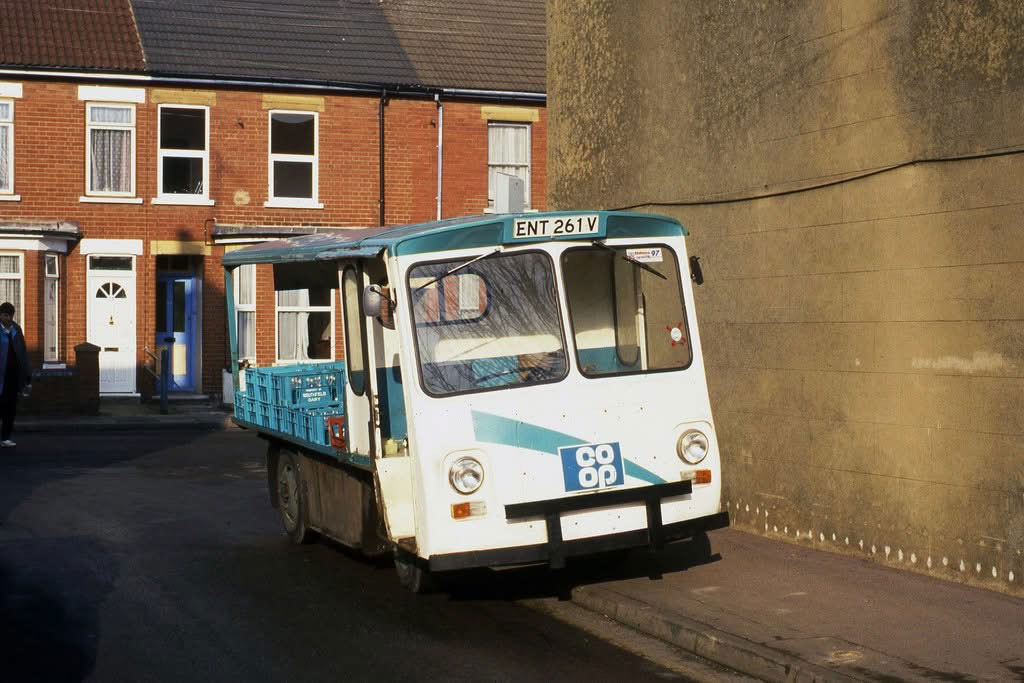I can still picture the scene during our school summer holidays. Weekends were the best days. My friend and I waited on Girton Road with excitement for the milk float. It was our secret adventure. Helping wasn’t allowed, but many milkmen looked the other way. They let us jump on and off to help them. It made their routes faster. The Co-op Milk Dairy was on Price Street in Cannock. Many kids waited there, hoping for a chance. We wanted a ride and a bit of work to earn a shilling or some sweets. Sometimes, we even get extra milk. The orange drink was a real treat, the best part was riding on the milk float. The cabs were spacious inside, and one or two helpers could fit in easily. Back then, the milk floats ran on batteries. They weren’t fancy, but they worked, I would say they were ahead of their time, as now we’re going back to batteries with modern cars.

My milk round started on Girton Road and went down little side streets, ending at the top of Saint John’s Road. After that, it was back to the dairy on Avon Road. These days, you can’t do that. Health and safety rules are strict now, and child protection laws are very important. It was a fun way to earn pocket money.
We didn’t need alarms to wake us up. The milk float’s gentle hum was our morning call, and the sound of the clinking bottles were our daily wake-up noise. Life changes without us noticing. Years later, looking back brings it all into focus. Those simple times feel important now. To others, those days might seem unimportant. But to a ten-year-old in Cannock, they meant everything. The Co-op milk van always arrived without fail. I heard it turn onto our street each day, with a strange whirring sound announcing its arrival. Battery power ran those milk floats. We had electric vehicles back in the sixties. No one cared about that sort of thing then. It makes me laugh now when I think about it.
We didn’t just stand there like bumps on a log. There was a real science to it. You learned the milkmen’s habits. Mr. Henderson, for instance, always turned onto Girton Road at 6:15am on Saturdays. Sharp as a tack. Others were earlier, some later. You had to pick your spot. Getting a helper was a big deal for them, too. It saved them time.
Getting a spot wasn’t a guarantee. Some milkmen were grumpy. They’d just shake their heads and drive right past. But then there were the good ones. Mr. Henderson was one of the best. He’d give a little nod, a quick smile, and that was your invitation. No words needed. It was an unspoken agreement. He knew we were reliable.
Mr. Henderson was a quiet man. He had a slight limp, always wore a cap, even in summer. He didn’t say much, but he taught you things. How to carry two bottles at once without clinking them too loudly. Which doors opened inwards, which outwards? Small things, but they felt big when you were ten. Like learning a secret language.
The shilling was nice, sure. It meant comics or a bag of sweets from the corner shop. But the real pay was the feeling. You were part of something important. That fizzing orange drink was a bonus. It tasted better out of a cold milk bottle, standing on the float, the world still mostly asleep. A proper reward.
Not everyone gets to be a milk boy. You had to earn it. Some kids from Price Street would hang around the dairy, hoping for a chance. They looked at us with a mix of envy and respect. We were the chosen few. It wasn’t just about the work; it was about the status. We had the best job.
Those routes, the quiet streets, the chill morning air. They taught you about responsibility without even trying. You learned about time, about people, about earning your keep. It wasn’t just pocket money. It was the feeling of being useful, part of the grown-up world, even if just for an hour or two on a battery-powered milk float. A simple time.
By Robert James Keene 2025
